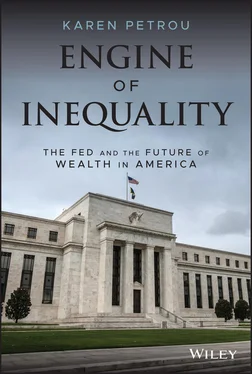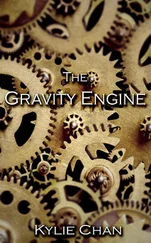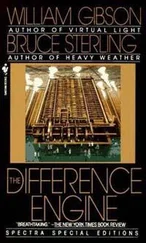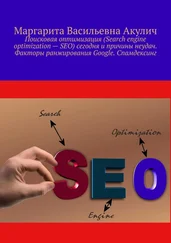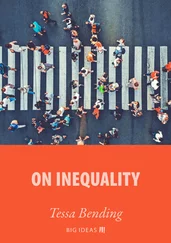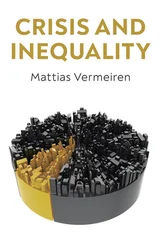In fact, income inequality in 2019 was even worse in the US than it was during the Great Depression. 17 Reflecting this, 37 percent of the US was at grave financial risk after only a $400 unexpected expense. 18 Clearly, unexpected expenses poured down in waves after COVID hit, increasing the percentage of Americans who couldn't pay their monthly bills in full by 12.5 percent between just late 2019 and April 2020. 19
The younger you are, the worse it gets. In the “theft of a decade” characterizing the years after 2008 for younger citizens, Americans entering the workforce were mired in student debt, struggled to find jobs, and generally owned nothing more than a car that they could call their own. 20 In 2019, the average net worth of millennials was still just $8,000, far less than earlier generations at their age. 21 When COVID hit millennials yet again, some called them the “unluckiest generation ever.” 22 This might not be historically true, but anger across the entire US political spectrum tells us that it's how millions feel. Even relatively wealthy Americans said that their financial position was a cause of acute stress, and that was before COVID. 23
Cut these data down to see how African Americans and Hispanics are doing and one sees still sharper divides – racial economic-equality disparities are as bad as they were before the civil rights era promised Black Americans a better, fairer deal. There is now a bigger homeownership gap between Black and white Americans than before 1968, when critical fair-housing legislation was first signed into law. 24 In 2016, white household average wealth was seven times that of Black households and five times that of Hispanics. 25
The Economic-Recovery Mirage
The Federal Reserve touted a robust US economy starting in 2015 26 and then up to and even after COVID hit in March 2020. 27 President Trump cited stock prices, gross domestic product (GDP), and “record” employment numbers when it suited him. When it didn't, he blamed the Fed, arguing that big economic gains on all of these counts would have continued were it not for a miserly central bank or, after COVID, unduly cautious public-health officials. Mr. Trump had a far better sense of the electorate's mood and how to move it than the Fed. But each of their statements nonetheless portrayed a prosperity remote from the lives of many, including large percentages of those who voted for Donald Trump in 2016.
The Fed and President Trump make the same mistake: they measure the economy by across-the-board indicators. Most of these matter only to the wealthiest Americans who own most of the assets in the stock and bond market. Unemployment may have looked as if it was at record-breaking lows before the pandemic, but that's only if you ignore labor-participation rates, which also show who wants to work or work more. At the height of the seeming boom in 2019, one-third of Americans reported that they were not working as much as they wanted. This is a far more telling number than the aggregate employment dot on the Fed's chart. It proves just how many Americans struggled. Indeed, even this number underestimates the struggle – far more Americans worked more jobs and/or more hours than ever before in late 2019, but their wages barely budged. 28
From 1989 to 2018, middle-class, real (i.e., inflation-adjusted) wealth increased about 1 percent a year; 29 over the same period, real gross domestic product went up about 2.5 percent a year. 30 Clearly, someone was getting a lot richer as the US economy prospered, but it was not the middle class.
It's not just numbers that obscure the economic reality confronting most Americans. Many economists also firmly believe that capitalism ensures that those who try are those who win. For economists, this conclusion is cloaked in “efficient market” theory – that is, markets reward skill and talent. Conservative politicians concur, but also believe that wealth accumulated ultimately trickles down to lower-income workers, who then get their chance to compete for capitalism's rewards. Some have even said that it's not actually all that bad that almost 40 percent of Americans can't handle a $400 expense since most of them have friends or willing creditors. 31 It goes unsaid that such assistance impoverishes families and loads them down with debt in an endless, debilitating cycle of deepening impoverishment.
Some go beyond aggregate data or supply-side theory to say that America is only unequal because a lot of Americans are indolent, sometimes renewing attacks on “welfare queens” to argue that folks would get back to work if government benefits such as disability payments to veterans were curtailed. 32 Others quibble with various statistics illustrating income and wealth inequality on grounds that this or that data point ostensibly fails to include one or another additional or different data point such as receipt of food stamps that a particular pundit prefers. 33 None of these inequality dissenters notes that, even if one adjusts data points up or down to reflect refinements, trend lines are inexorable: America is clearly unequal no matter how one measures income or wealth and became far more unequal far faster after the financial crisis. After 2008, middle-class wealth collapsed, but the wealth of the top 10 percent grew 19 percent in the following decade, 34 resulting in the largest wealth-share increase – 6 percentage points – since the Second World War. 35 At the same time, middle-income family wealth was still below its 2008 level, and lower-income families lost 16 percent of their pre-crisis wealth (not much to start with, of course). 36
Something happened after the 2008 crisis ebbed that turned inequality into a faster and still more corrosive force running through the fabric of American social and political thought. This book will show that this something wasn't the great financial crisis itself – painful though it was, the years between 2008 and 2010 were actually more equalizing than those that preceded them due in large part to the short-term decrease in the value of assets held by the wealthy. What happened starting in 2010 is that federal financial policy-makers tried to boost the economy and redesign American banking through a series of unprecedented market and regulatory interventions. All were well intentioned but most were nonetheless still directly and demonstrably destructive to US income and wealth equality.
Is it really plausible that financial policy on its own could make the US so much less equal at such speed? Yes. Economic equality is determined by who has the money and financial policy sets the terms on which markets allocate money to whom as dictated by the inexorable forces of profit maximization. Indeed, as we will see, financial policy now even defines what money is as well as who gets it. “Profit maximization” sounds like a textbook term, and indeed it is. But its meaning is anything but academic: profit-maximizing companies (and that's virtually all of them) set corporate strategy to satisfy the investors on whom corporate survival – not to mention senior-management bonuses – depend. Scrupulous companies will not violate law or rule to maximize profits, but they will find a way to align profits and compliance, no matter the cost to economic inequality. Once, investors were tolerant of long-term strategies that sacrificed a bit of near-term return in favor of long-term profitability. Now, not so much.
This profit-maximization construct is so common that it has characterized American corporate life for the half-century and more since Milton Friedman first pronounced:
There is one and only one social responsibility of business – to use its resources and engage in activities designed to increase its profits so long as it stays within the rules of the game, which is to say, engages in open and free competition, without deception or fraud. 37
Читать дальше
